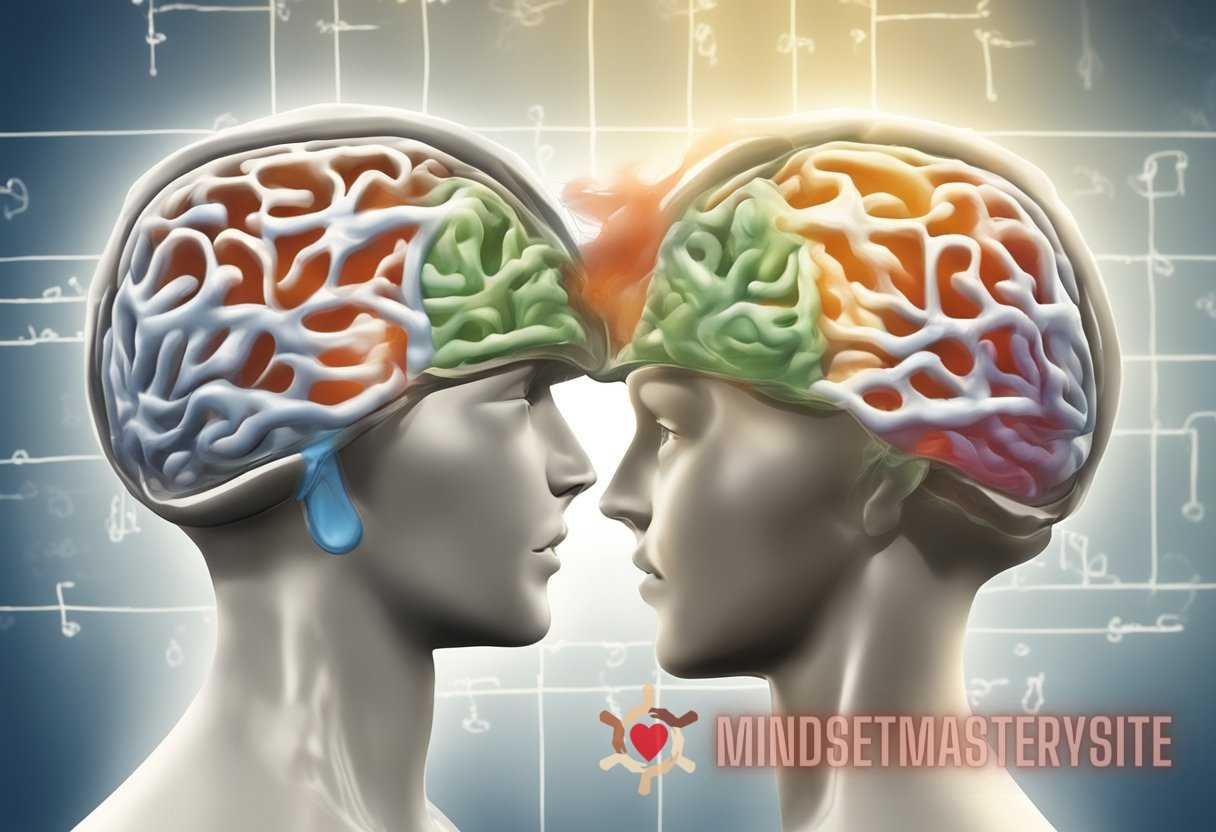Fanning the Flames of Success: Unraveling the Science of Motivation for Unprecedented Achievement
In today’s fast-paced world, success is often measured by the degree of motivation and determination one possesses. People who are driven, focused, and passionate about their goals tend to achieve higher levels of success than those with a lack of motivation. But what exactly is motivation, and how can it be harnessed to achieve unprecedented achievement?
The science of motivation, often referred to as motivation mastery, is a complex and fascinating field that explores the psychological, biological, and environmental factors that influence human behavior. By understanding the underlying principles of motivation, individuals can unlock their full potential and achieve remarkable success in all areas of life.
The Basics of Motivation
Motivation is the force that drives behavior, initiates action, and sustains momentum towards achieving a particular goal. It is the underlying reason why individuals act in a certain way and put in the effort to accomplish their objectives. Motivation can be intrinsic or extrinsic, depending on whether it arises from within oneself or is influenced by external factors.
Intrinsic motivation refers to the innate desire and satisfaction obtained from engaging in a particular task or activity. It is driven by internal rewards such as personal enjoyment, a sense of purpose, or the feeling of competence. On the other hand, extrinsic motivation involves external rewards or incentives that encourage individuals to act in a specific way, such as money, recognition, or social approval.
While both intrinsic and extrinsic motivation can be powerful driving forces, research has shown that intrinsic motivation tends to be more sustainable and leads to higher levels of satisfaction and achievement in the long term. This is because tasks that are intrinsically motivating are typically viewed as more enjoyable and meaningful, leading to a greater sense of autonomy, competence, and personal growth.
The Role of Goal Setting in Motivation
Setting goals is a fundamental aspect of motivation mastery. By defining clear and specific goals, individuals can create a sense of direction and purpose, which in turn fuels their motivation and drives them towards success. Goals provide a roadmap for action, helping individuals prioritize tasks, make decisions, and stay focused during challenging times.
When setting goals, it is important to follow the SMART framework, which stands for Specific, Measurable, Achievable, Relevant, and Time-bound. Specific goals are clear and well-defined, allowing individuals to have a clear understanding of what needs to be accomplished. Measurable goals can be quantified, enabling individuals to track their progress and evaluate their success. Achievable goals are realistic and attainable, ensuring that individuals do not become overwhelmed or discouraged. Relevant goals align with one’s values, interests, and long-term aspirations, providing a strong sense of purpose. Lastly, time-bound goals have a set deadline, creating a sense of urgency and accountability.
Research has consistently shown that individuals who set specific and challenging goals tend to perform better and demonstrate higher levels of motivation and achievement. Goal setting serves as a powerful motivator by providing individuals with a target to strive for, enhancing their focus, persistence, and self-determination.
The Science Behind Intrinsic Motivation
Intrinsic motivation is deeply rooted in human psychology and is influenced by a variety of factors. One key factor that fuels intrinsic motivation is the feeling of competence. When individuals believe they possess the skills, knowledge, and abilities required to successfully complete a task, they are more likely to be intrinsically motivated. This sense of competence boosts confidence, self-esteem, and motivation, leading to increased effort and perseverance.
Another factor that influences intrinsic motivation is autonomy, or the perception of having control and independence over one’s actions. When individuals have the freedom to choose their tasks, methods, and strategies, they are more likely to feel motivated and engaged. Autonomy fosters a sense of ownership and responsibility, empowering individuals to take initiative, embrace challenges, and explore their full potential.
Finally, intrinsic motivation is also influenced by the level of relatedness or social connection an individual experiences. Humans are social beings, and we thrive when we feel a sense of belonging and support from others. When individuals perceive that their actions are valued, appreciated, and have a positive impact on others, they are more likely to feel motivated and fulfilled. This sense of relatedness fosters a collaborative and cooperative mindset, fueling motivation and inspiring individuals to work towards shared goals.

Unleashing the Power of Cognitive Strategies
Cognitive strategies are mental processes and techniques that individuals can utilize to enhance their motivation, overcome obstacles, and achieve sustainable growth. By understanding and implementing these strategies, individuals can break through barriers and reach unprecedented levels of achievement.
One powerful cognitive strategy is visualization, which involves mentally imagining oneself successfully completing a task or achieving a goal. Visualization taps into the power of the subconscious mind and helps individuals build confidence and belief in their abilities. Research has shown that individuals who visualize their success are more likely to perform better, experience less anxiety, and maintain high levels of motivation.
Another cognitive strategy is self-talk, which involves consciously directing and shaping one’s internal dialogue. By replacing negative, self-limiting thoughts with positive, empowering ones, individuals can cultivate a growth mindset and foster motivation. Self-talk serves as a powerful tool for managing stress, building resilience, and boosting self-confidence.
In addition, goal setting and planning play a crucial role in cognitive strategies. By breaking down larger goals into smaller, manageable tasks and creating a step-by-step action plan, individuals can enhance their motivation and stay focused. This approach allows for a sense of progress and accomplishment, providing individuals with a sense of momentum and fueling further motivation.
To further enhance motivation, individuals can also implement reward systems and incentives. By rewarding oneself for completing specific tasks or achieving milestones, individuals create positive reinforcement and strengthen their motivation. Rewards can be intrinsic, such as treating oneself to a favorite activity or allocating time for relaxation, or extrinsic, such as earning monetary incentives or receiving recognition from others.
The Impact of Environment on Motivation
While motivation is often viewed as an individual trait or characteristic, it is heavily influenced by the environment in which individuals operate. External factors, such as social support, organizational culture, and physical surroundings, play a pivotal role in shaping motivation and driving behavior.
One key environmental factor that impacts motivation is social support. When individuals receive encouragement, guidance, and positive feedback from their peers, mentors, and loved ones, they are more likely to feel motivated and inspired. Social support fosters a sense of belonging and connection, reduces stress, and provides individuals with the necessary resources and tools to overcome challenges and achieve their goals.
Another influential factor is the organizational culture and climate. Organizations that promote a positive and supportive work environment tend to have higher levels of employee motivation and engagement. In contrast, organizations with a negative or toxic culture can erode motivation and lead to burnout and dissatisfaction.
The physical environment can also impact motivation. A well-designed workspace that is organized, comfortable, and aesthetically pleasing can enhance motivation and productivity. On the other hand, a cluttered or dull environment can stifle creativity, decrease focus, and diminish motivation.
Conclusion
Motivation is a powerful force that can propel individuals towards unprecedented achievement and success. By understanding the science of motivation and implementing strategies such as goal setting, visualization, self-talk, and environmental optimization, individuals can unlock their full potential and accomplish remarkable feats.
Ultimately, motivation mastery is an ongoing process that requires self-reflection, self-awareness, and continuous learning. By harnessing the power of motivation, individuals can fan the flames of success and achieve unparalleled levels of personal and professional fulfillment.
For further insights on self-motivation dynamics and unleashing the power of cognitive strategies, check out the following articles available at https://mindsetmasterysite.fun/goal-setting/self-motivation-dynamics/ and https://mindsetmasterysite.fun/goal-setting/unleashing-the-power-of-cognitive-strategies-achieving-sustainable-growth-through-strategic-goal-setting/.



